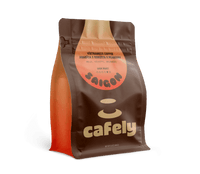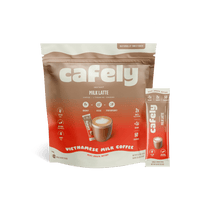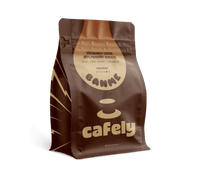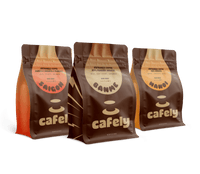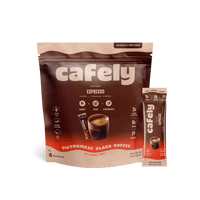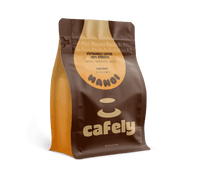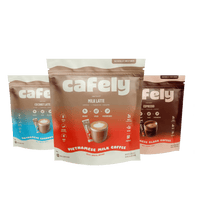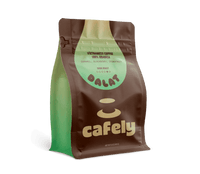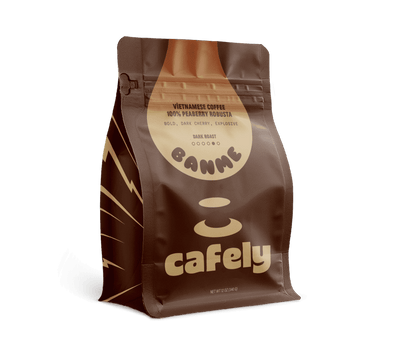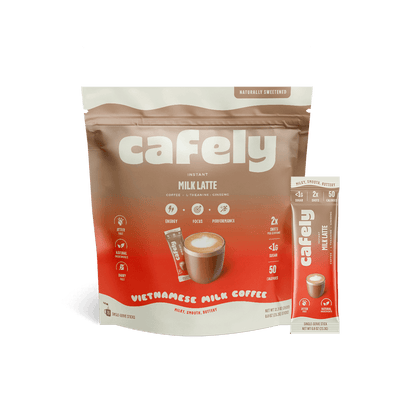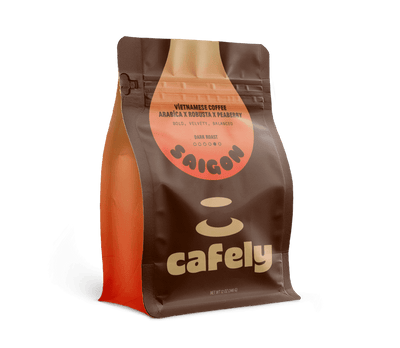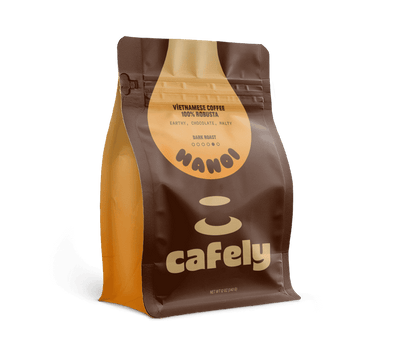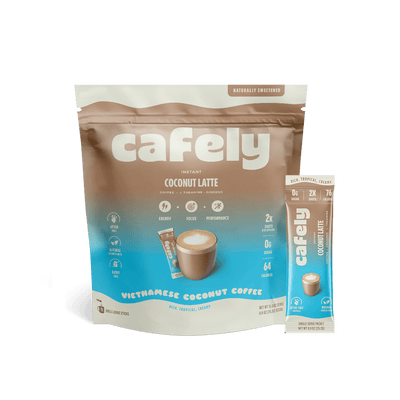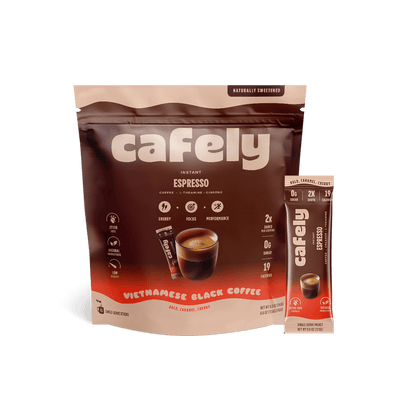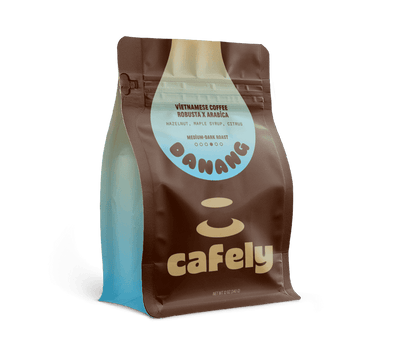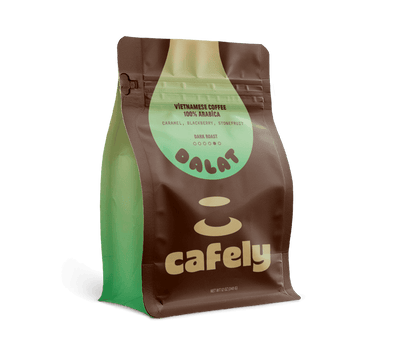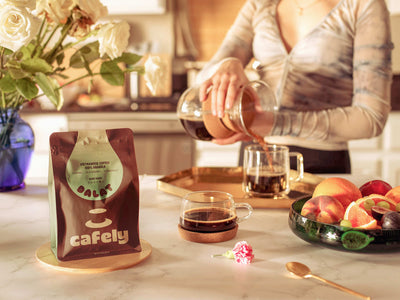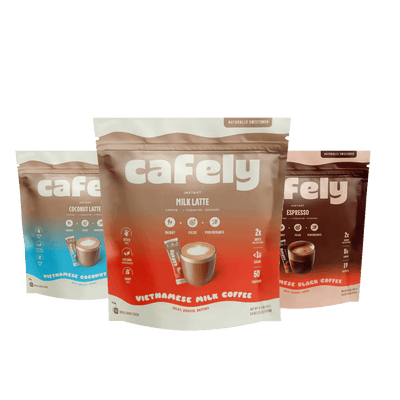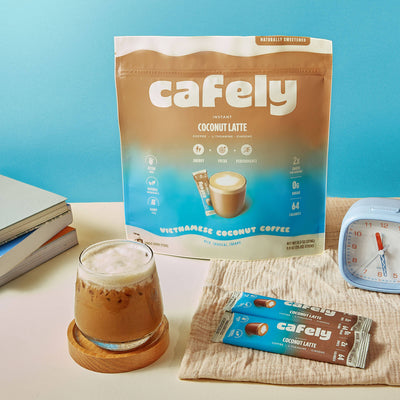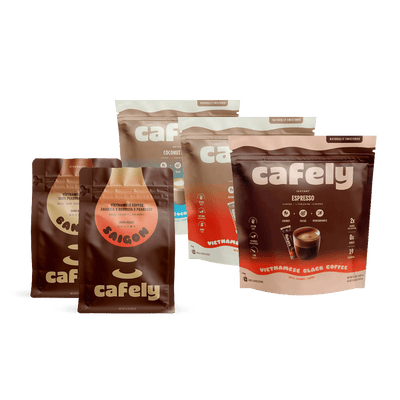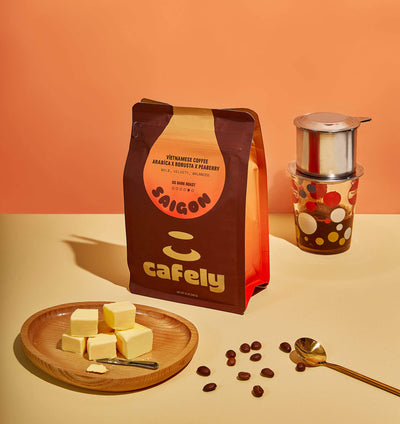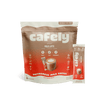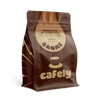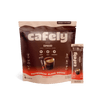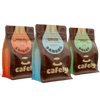Buy Premium Coffee Online
Our international coffee collection takes you on a global adventure to savor the unique and captivating flavors of top-quality specialty coffees.
BanMe Coffee (100% Peaberry Robusta)
Nestled in the heart of Vietnam's coffee region, Ban Mê (AKA Buôn Ma Thuột) is synonymous with strong coffee.
Vietnamese Coffee 2.0 (Milk Latte)
Exceptional Taste: Silky smooth body with a sweet and milky finish Double The Energy: Dual espresso strength in one convenient packet Mind-Body Boost: Adaptogens for enhanced focus and performance Zero Sugar Crash: Naturally sweetened with monk fruit, no additives needed Instant Café Experience: Barista-quality coffee anywhere, anytime, ready in seconds
SaiGon OG Coffee (Robusta x Arabica X Peaberry)
The SaiGon OG Blend is an homage to the city's vibrant energy. It's a unique combination offering a bold but balanced flavor profile.
HaNoi Coffee (100% Robusta)
The Ha Noi Blend, with 100% Vietnamese Robusta, is as authentic as it gets. It reflects Ha Noi's deep-rooted coffee culture and delivers a potent, earthy, and rich taste with a robust body and a lingering finish.
Vietnamese Coffee 2.0 (Coconut Latte)
Exceptional Taste: Full bodied with a sweet coconut cream finish Double The Energy: Dual espresso strength in one convenient packet Mind-Body Boost: Adaptogens for enhanced focus and performance Zero Sugar Crash: Naturally sweetened with monk fruit, no additives needed Instant Café Experience: Barista-quality coffee anywhere, anytime, ready in seconds
Vietnamese Coffee 2.0 (Espresso)
Exceptional Taste: Rich dark roast with cherry and chocolate notes Double The Energy: Dual espresso strength in one convenient packet Mind-Body Boost: Adaptogens for enhanced focus and performance Zero Sugar Crash: Naturally sweetened with monk fruit, no additives needed Instant Café Experience: Barista-quality coffee anywhere, anytime, ready in seconds
DaNang Coffee (Arabica x Robusta)
Mirroring Da Nang's harmonious blend of traditional charm and modernity, this blend offers the best of both worlds.
DaLat Coffee (100% Arabica)
Sourced from the high mountains of Vietnam, this Da Lat 100% arabica blend is a tribute to the region's serene beauty and flourishing coffee estates.
Vietnamese Coffee 2.0 Variety Pack
Discover which Vietnamese Coffee 2.0 fuels your boldness. This variety pack includes our complete collection of instant coffee innovations - each combining traditional Vietnamese robusta strength with natural adaptogens for clean, focused energy.
Vietnamese Coffee Power Pack
Discover our Best Seller Bundle - a carefully curated collection of Vietnam's boldest coffees, crafted for those who demand authentic flavor and clean, powerful energy.
Cafely's Coffee FAQs
The Cafely Difference
|
|
Other Brands | |
| Organically Grown | ||
| Authentic Bold Taste | ||
| Single-Origin Specialty Coffee | ||
| Roasting Method | Artisanal roast in small batches | Mass production roast |
| Natural Energy Booster | 120-150mg caffeine per cup | 75–90 mg caffeine per cup |
| Flavor Profile | Bold, smooth, creamy | Inconsistent, sour, acidic, burnt |
| Customer Satisfaction Guarantee | 100% Happiness Guarantee |
